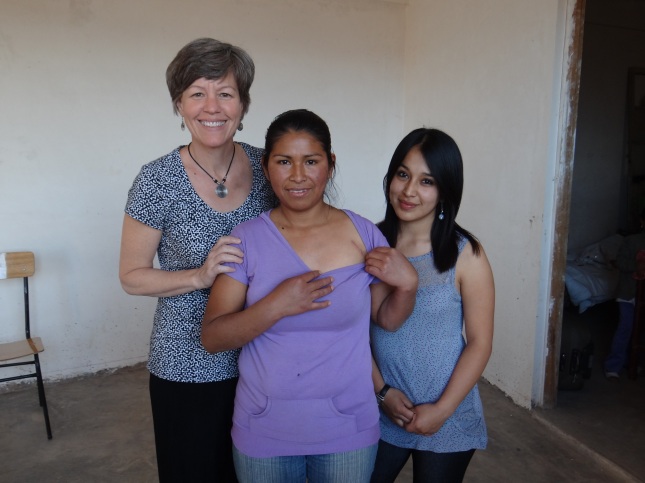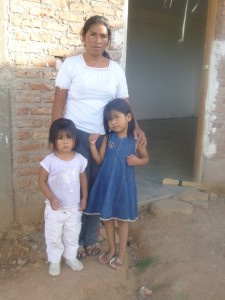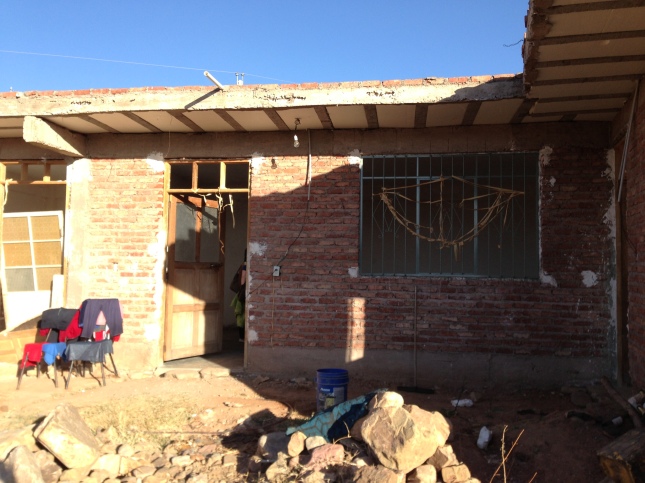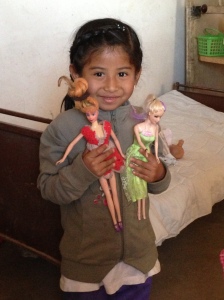Breaking the Silence on Chagas
Diving Deeper - summer blog series written by Jodi Grahl

One of the most frequent questions people ask us at Solidarity Bridge is: Why Bolivia? What health problems in Bolivia make it so worthy, compared to the pressing needs in any other country or in our own cities and neighborhoods?
A thorough response to that question requires much more than a blog post. But here’s one key part of that answer.
Chagas disease.

Chagas disease is a parasitic infection found only in the Americas. It is transmitted by insects who predominately live in the mud walls and thatched roofs of poor rural populations, making Chagas a disease of the poor. While endemic to 21 countries, Bolivia has the misfortune of being the epicenter of this disease. Of the 8-10 million people infected with Chagas in Latin America (that’s 8 people for every one person in the US with HIV/AIDS), about 1 million of those are in Bolivia, a country of only 10 million. In the most severely affected regions, like around Aiquile, Bolivia, the infection rate is roughly 75% of the population.
Most in the United States have never even heard of Chagas. Its victims are the rural poor, whose suffering and death attract little notice. Chagas kills in silence. Infection occurs while people are sleeping, when the vinchuca bug comes out of hiding and spreads the infection, usually unnoticed. It is years or decades before chronic Chagas disease manifests among about one-third of those infected. Roughly 20% of those infected develop cardiac symptoms, which may include an irregular heartbeat, enlarged heart, or even sudden cardiac arrest. For another 10% of those infected, Chagas attacks the digestive system, where it destroys the elasticity of the esophagus and/or the colon. When these patients are left untreated and die, the official cause of death may be noted as heart failure or megacolon disease, further contributing to the invisibility of Chagas.
So what is Solidarity Bridge doing about Chagas? Our role is focused on the surgical needs of those chronic Chagas patients who have reached the stage at which they need, for example, a pacemaker or a megacolon surgery. We currently partner with others who take on the fundamental tasks of educating local communities about Chagas and providing anti-parasitic treatment which can cure the infection if caught in time. Our surgical programs currently complement the intense work of Doctors Without Borders (MSF) in Aiquile. An MSF taskforce goes house to house to eradicate the vinchuca vector and detect and treat every Chagas infection they can. However, the anti-parasitic treatment cannot be administered if the patient already has organ damage. Those are the patients often referred to Solidarity Bridge.
Earlier this month, our Executive Director, Ann Rhomberg, and I accompanied two Medtronic Foundation delegates to Bolivia to visit projects supported by Medtronic, including our partnership with MSF on Chagas. I’ll write more about that visit in a future blog, but for now I want to share the story of one of the patients we met during our trip.

Norma Tito is a 29-year-old mother of two little girls, Isabel, 5, and Micaela, 3. Norma grew up in very precarious conditions in the rural region of Katariri, Campero, in the state of Cochabamba. She moved on her own to the city of Cochabamba where she began to work from a young age. Norma and her husband, Elmer, had ambitious plans for a better future. They took out a loan to purchase a rocky patch of land and another loan to begin to build their home. Given the severely overcrowded conditions they had been living in, sharing a small house with several siblings and their own families, Norma and Elmer moved into their home while the construction was little more than a shell. Almost all of Elmer’s earnings as a welder go to repay the bank, so the family relies on Norma’s income as a house cleaner to cover food and other expenses.

But plans quickly unraveled when Norma’s health deteriorated soon after the birth of her second daughter. She never recovered her strength and energy. Norma already knew she had Chagas, and was now told her heart was failing and she would need a pacemaker. That was an expense she and Elmer could not dream of covering, so Norma pushed on as best she could. But after fainting several times, the woman whose house she cleaned told her to not come back until she was better, out of fear Norma would collapse on the job. Now Norma was left with no income, leaving the family in an even more precarious state.

On a visit to her mother’s home in Aiquile, Norma heard about the MSF/Solidarity Bridge program. Norma was evaluated by our partner electrophysiologist, Dr. Maria Luisa Avendaño, who confirmed that Norma’s heart was beating at barely two-thirds the normal rate. Norma was approved for an immediate dual chamber pacemaker implant.
On the afternoon of July 10th, we climbed in a couple of taxis and bumped and swerved along the rocky and dusty roads for some 45 minutes to her home in the outermost fringes of the low-income settlements in the outskirts of Cochabamba. Norma’s first words upon greeting us were: Gracias por darme vida (Thank you for giving me life). We were all left speechless at such an exclamation, but Norma’s big smile and the playful antics of her adorable daughter Isabel quickly put us at ease. Isabel was full of giggles and cheer as she told us about how her mother was now feliz (happy) and bien (well). Only when we asked Isabel how her mom had been before her surgery did her eyes dim and her smile disappear. Mal (bad) she whispered. We quickly changed the subject to her clearly well-loved dolls, thankful that we could help make sure this little girl could now play more carefree, without the threat of losing her mother at such a tender age.
So to further answer the question: Why Bolivia? Because Norma and Isabel and other families need us to help break the silence and stand up to this insidious disease. Norma is just one of the more than 45 patients who have received a pacemaker so far through the MSF/Solidarity Bridge Chagas program.
For an in-depth understanding of Chagas, WiRED International has an on-line education course at: http://wiredhealthresources.net/presentations/81/story.html
You can also watch our short video focused on our fight against Chagas Disease.
